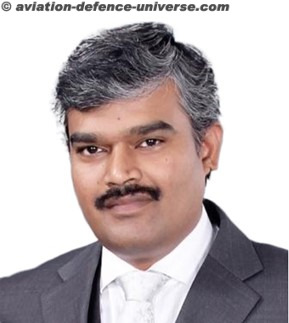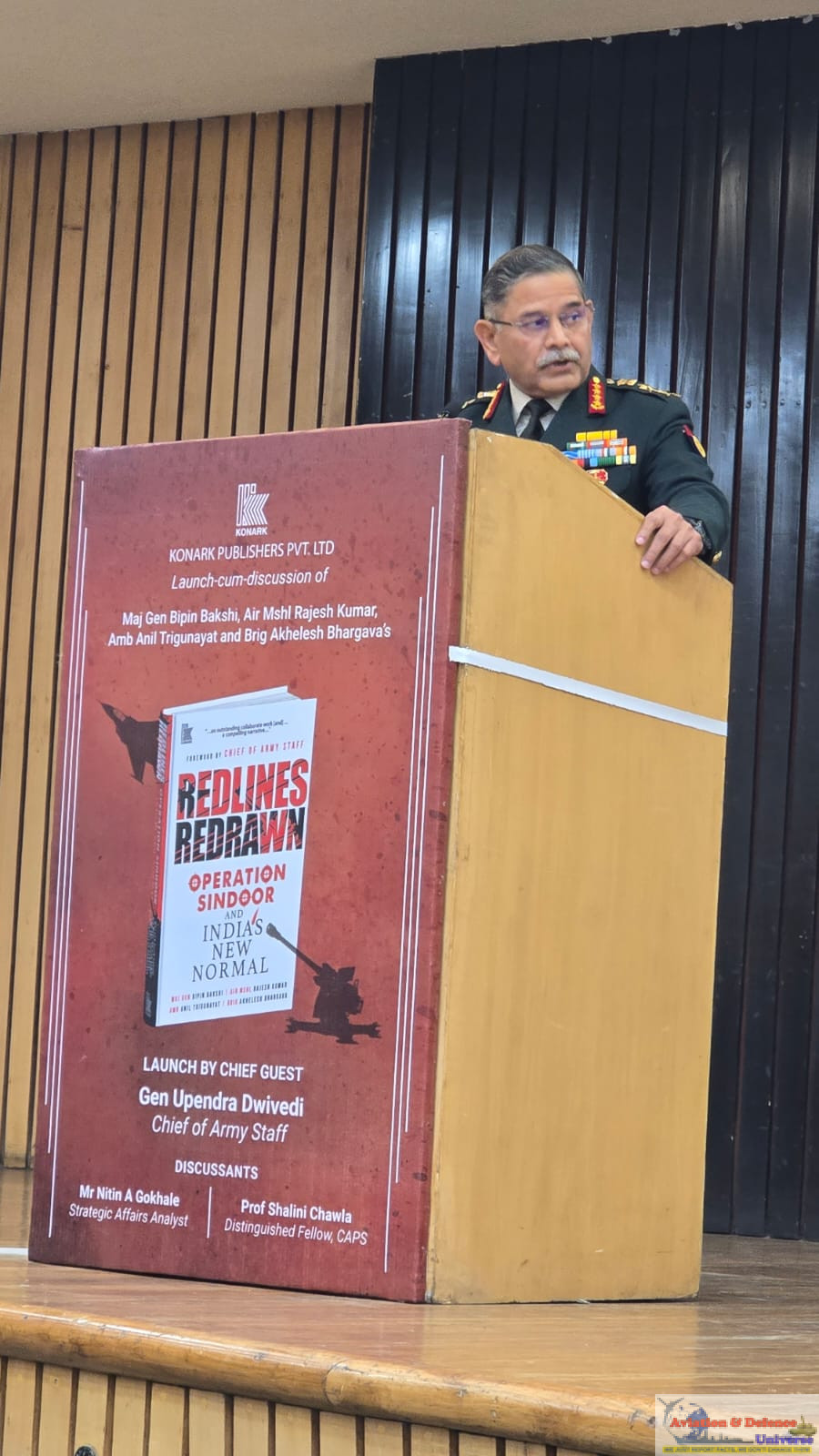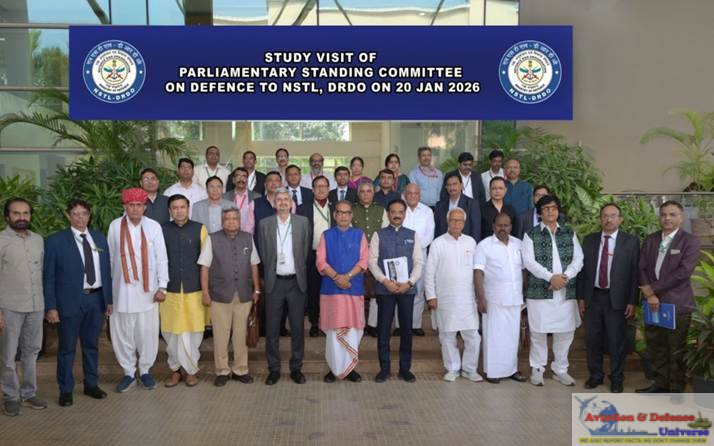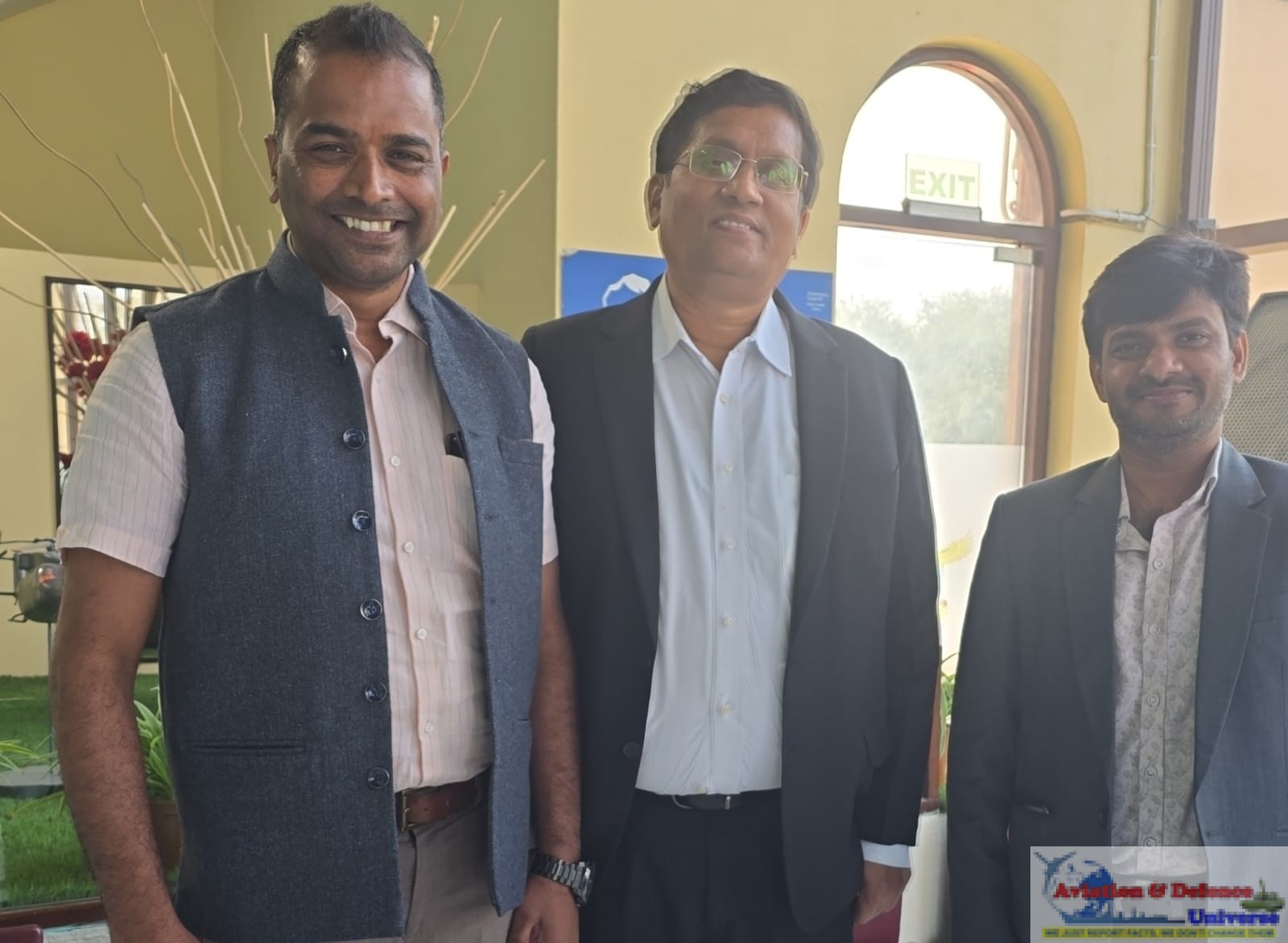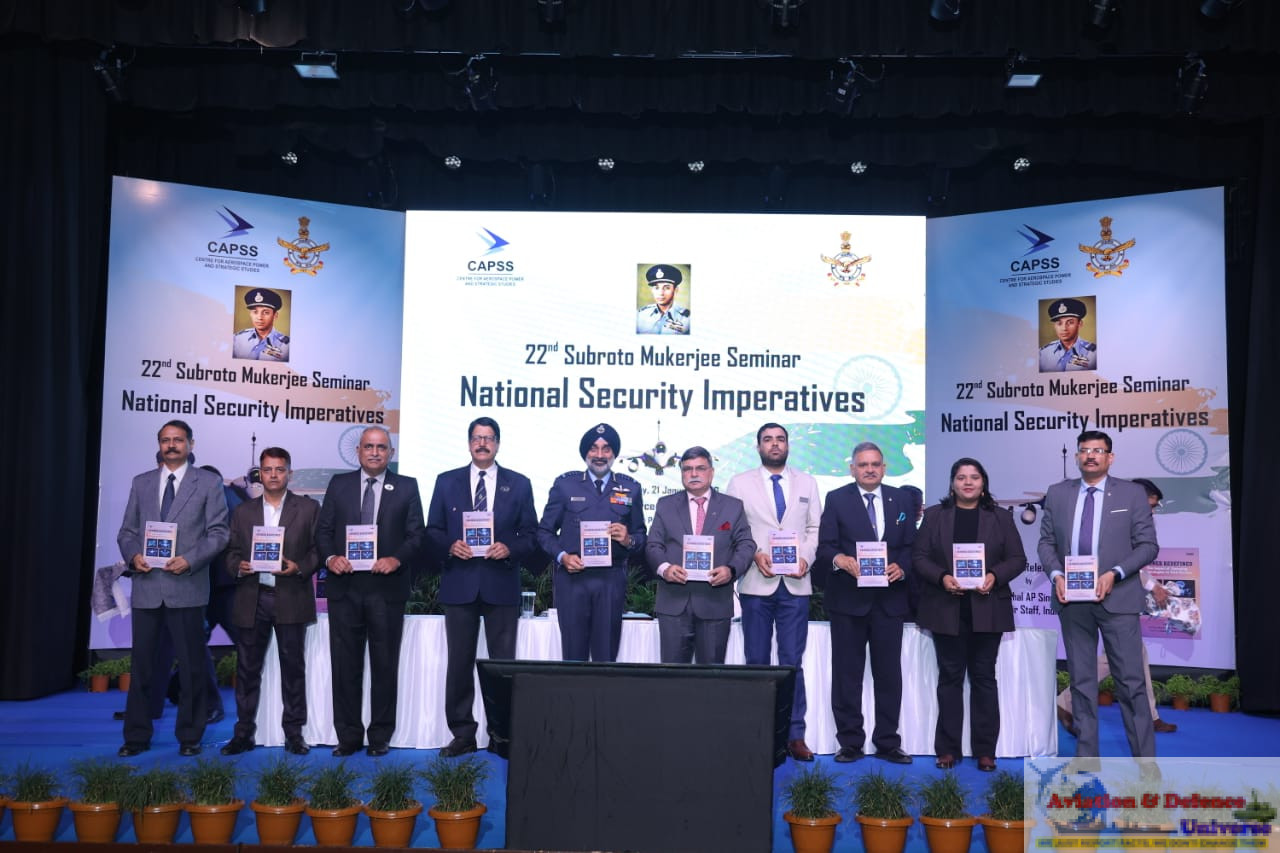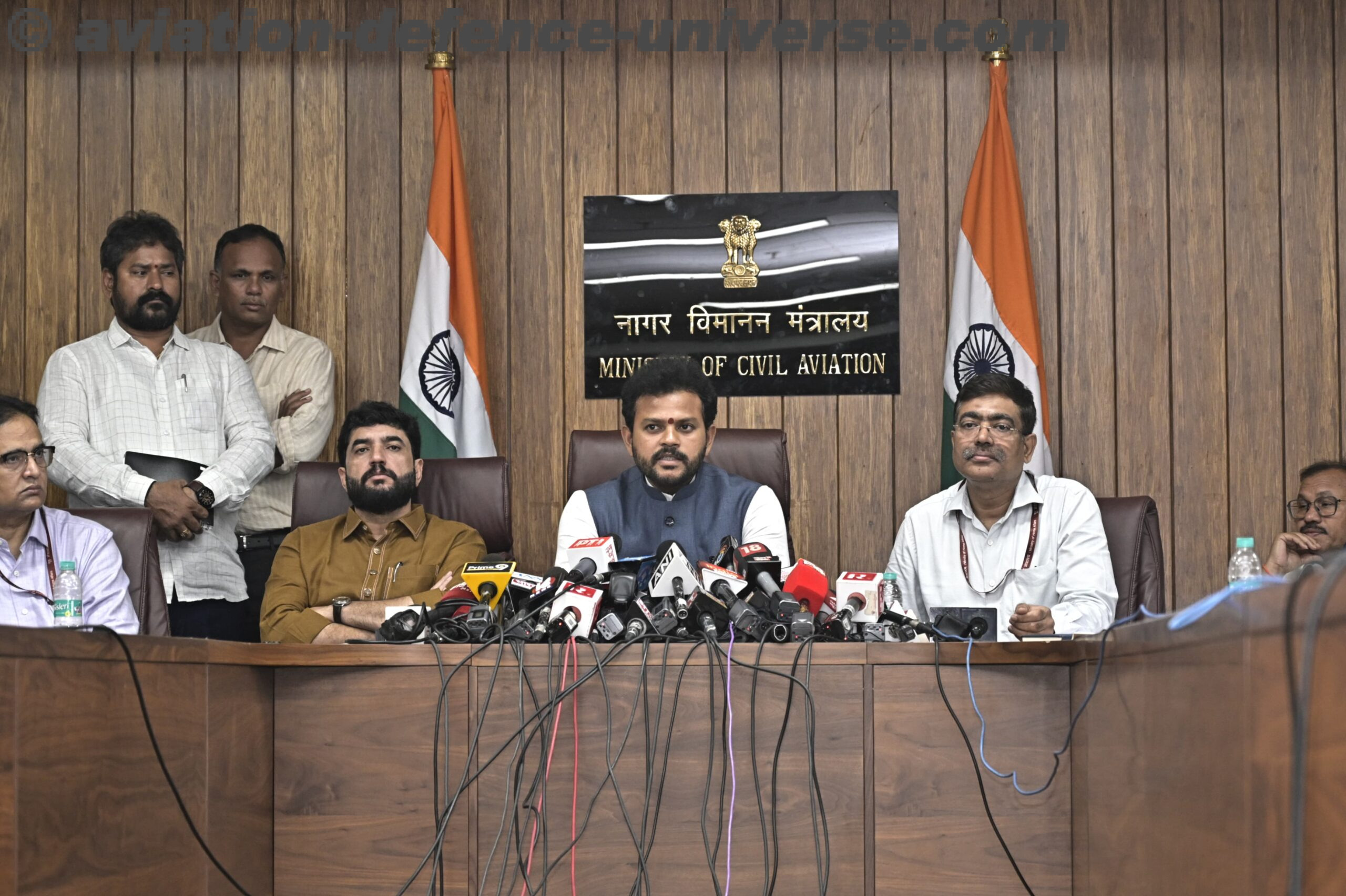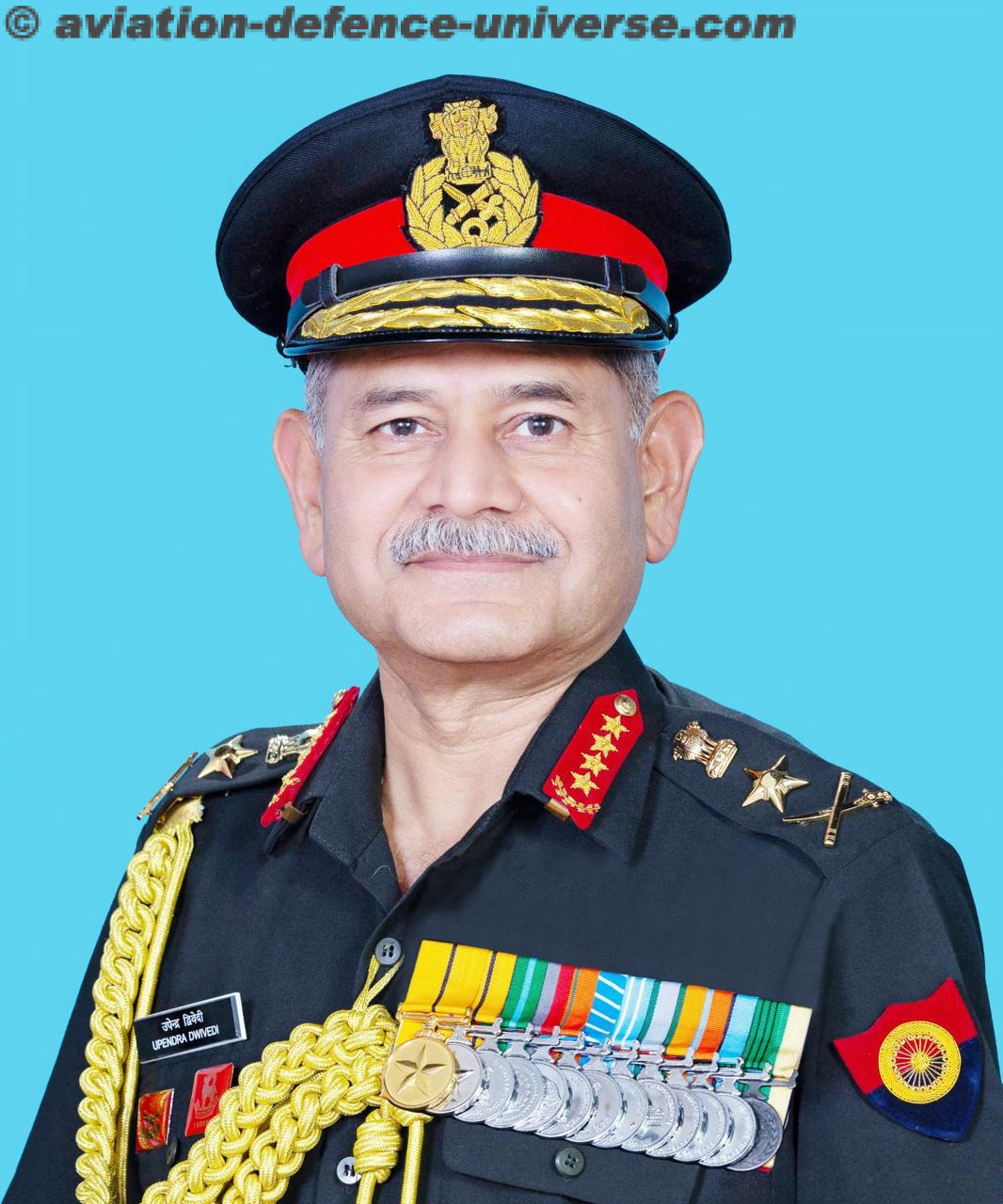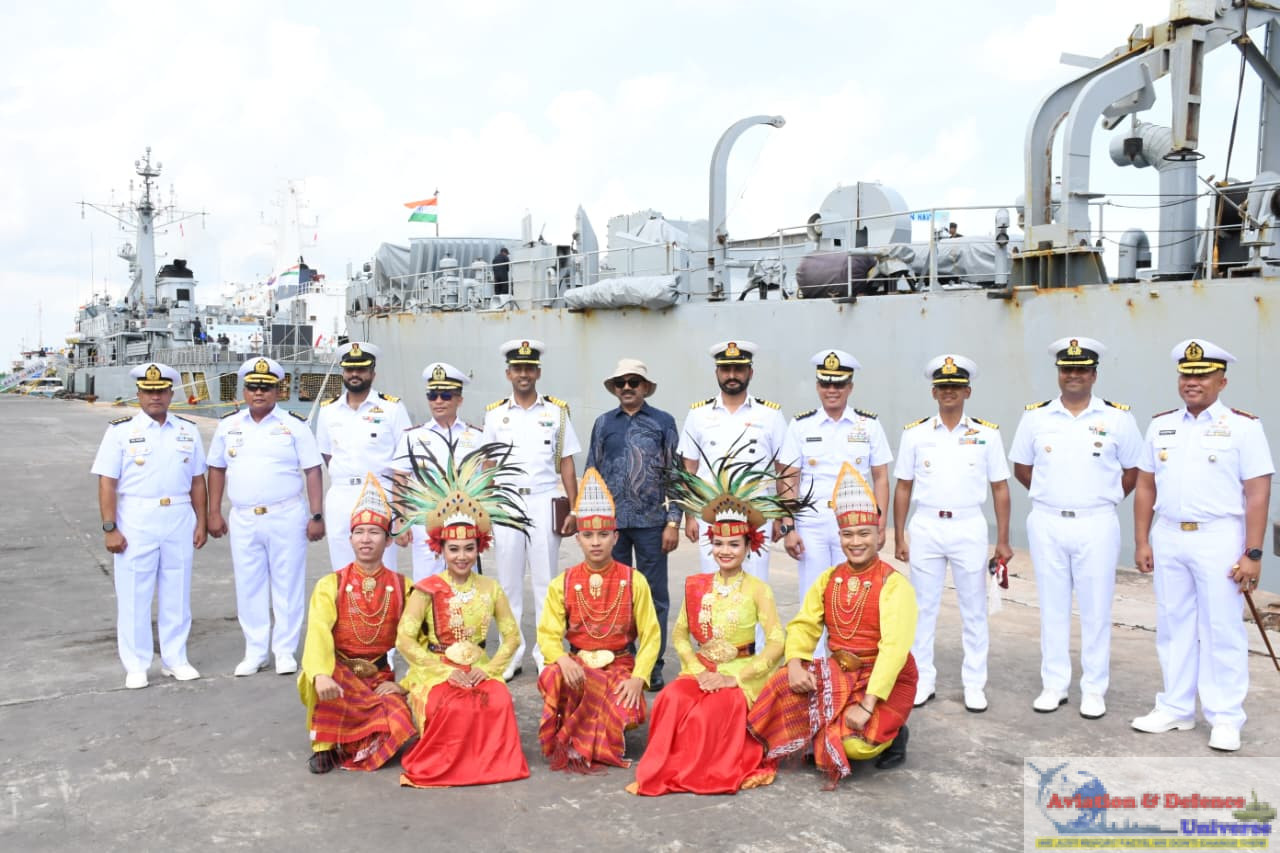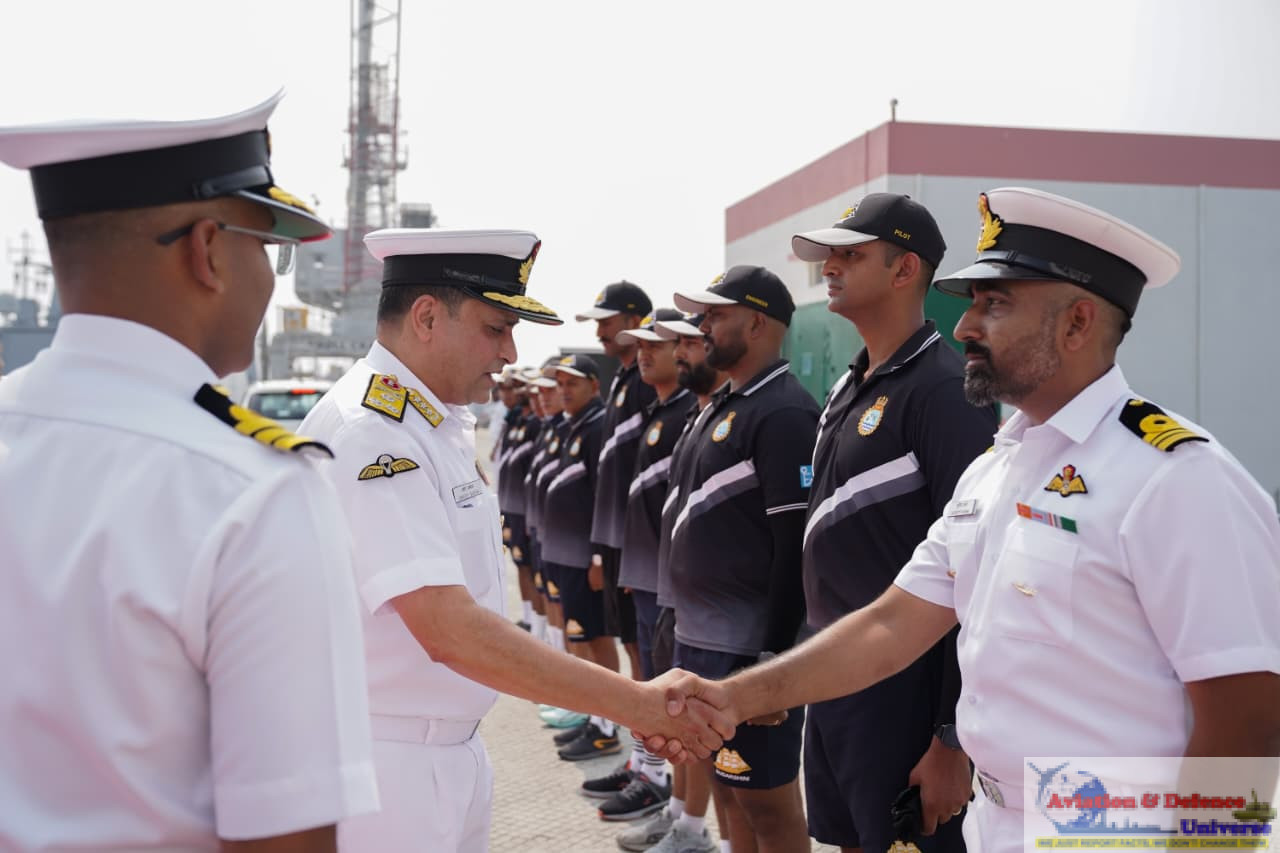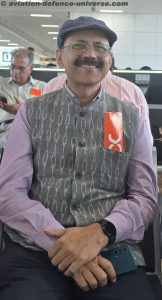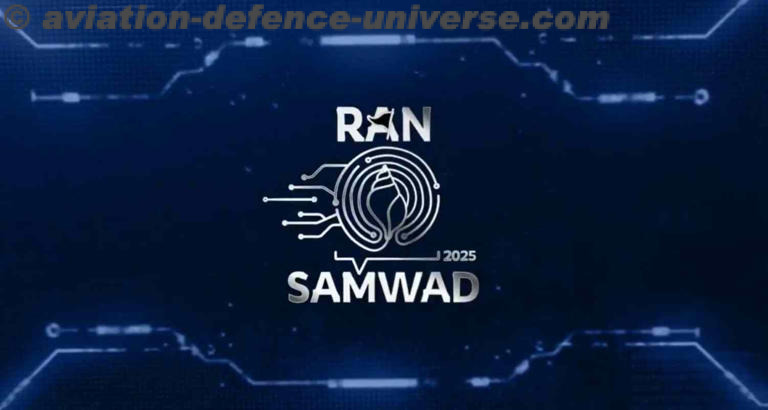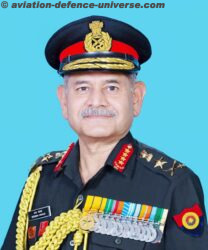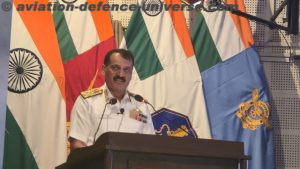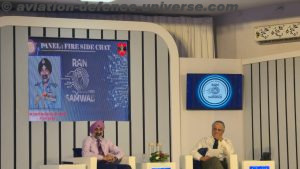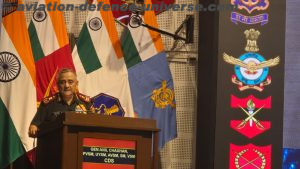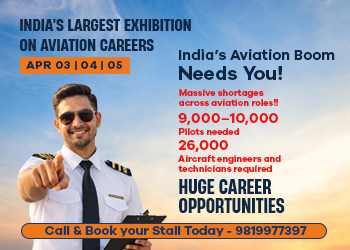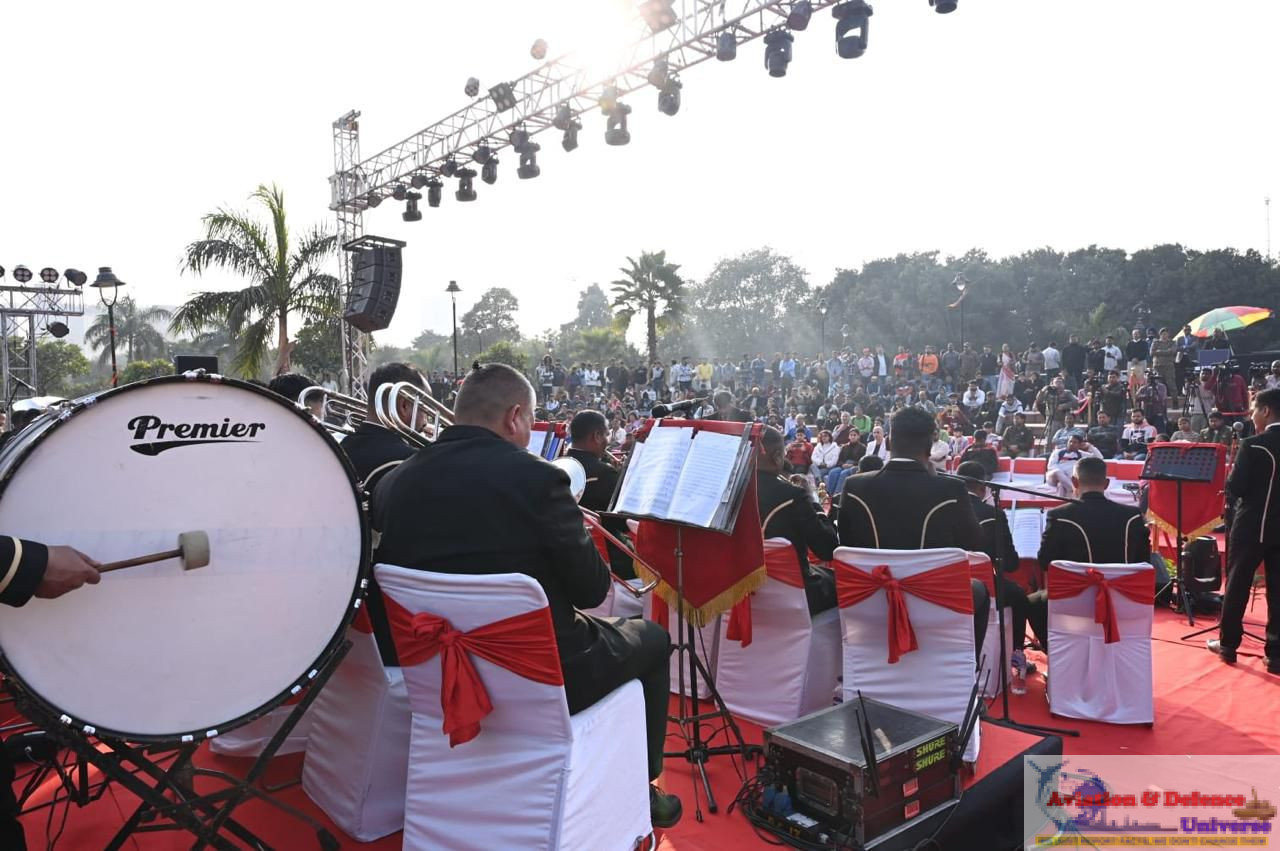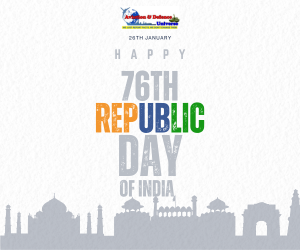- Maj Gen Ashok Kumar (Retd.) DG CENJOWS on the Launch of Ran Samvad
- Practitioners of War Take the Stage: Inside India’s First Tri-Services Warfare Dialogue
- Ran Samvad to Grow from National to International Platform of Military Dialogue
- Serving Officers at the Helm : Ran Samvad Marks a Shift in Defence Discourse
By Sangeeta Saxena
IGI Airport, New Delhi. 25 August 2025. The Indian Armed Forces are stepping into a new era of strategic dialogue with the launch of Ran Samvad—a tri-services initiative designed to focus exclusively on war, warfare, and warfighting. Unlike traditional forums that combine geopolitics, diplomacy, and economics, Ran Samvad is envisioned as the military’s own platform for practitioners of war to deliberate on the challenges of future conflict. In this exclusive interaction with Aviation & Defence Universe (ADU), Maj Gen Ashok Kumar (Retd.) Director General Centre for Joint Warfare Studies (CENJOWS), who has been closely associated with conceptualising the dialogue, shares insights into the vision, uniqueness, and long-term trajectory of this initiative.
Unlike most defence conferences dominated by retired officers, academics, and policy experts, Ran Samvad stands apart by giving the centre stage exclusively to serving soldiers. These are the practitioners of warfare, directly responsible for decision-making, operations, and strategy at different levels of command. Their deliberations revolve around the immediate challenges of equipping, training, and preparing the armed forces for the evolving battlespace. From joint operations to the integration of disruptive technologies such as AI and drones, the focus is on practical solutions that can be translated into actionable plans within the services. This unique approach ensures that the dialogue does not remain theoretical but resonates with the operational realities faced by the forces on the ground.
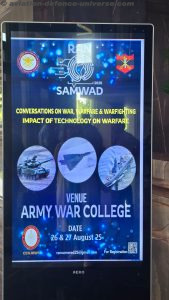 ADU. What is the role of CENJOWS in Ran Samvad?
ADU. What is the role of CENJOWS in Ran Samvad?
Maj Gen Ashok Kumar (Retd.). CENJOWS is a formal partner for the conduct of this event, right from conceptualisation to the actual execution and follow up. When this event was conceived, it came up with multiple rounds of brainstorming sessions with the Chief of Defence Staff, wherein we felt the need of Indian military having a dialogue of international repute. So, it was conceived as against the conventional dialogues like Raisina and Shangrila, where you cover the geopolitical issues, geoeconomic issues and host of other subjects, including some facets of the security related issues as well.
ADU. What makes this dialogue different from others?
Maj Gen Ashok Kumar (Retd.). This was intended to be purely concentrated on warfare and war fighting. Since it is intended to be followed by certain action plan by the services, therefore the services were made the important stakeholders. So, it was decided that all the three services would be doing this event in rotation. And for institutional knowledge , curating and planning, CENJOWS would be a permanent partner, so that the institutional knowledge remains and it can be built up one after the other, rather than everybody reinventing their wheel.
Another striking feature of Ran Samvad is its bottom-up model of idea flow. Instead of strategy being imposed top-down, young and mid-level officers are encouraged to share experiences, lessons, and innovative approaches directly drawn from the field. Their suggestions, emerging from first-hand exposure to the complexities of modern conflict, are debated, refined, and absorbed into the wider discourse by senior leadership. This inversion of the traditional hierarchy not only democratizes the conversation on national security but also infuses fresh energy into India’s military thinking. By institutionalising such a forum, the armed forces are creating a platform where ground-level insight meets strategic foresight, producing a roadmap for future warfare that is both authentic and adaptive. Let’s continue with our conversation with DG CENJOWS.
ADU. Who is conducting the inaugural edition and what is the plan for the coming years?
Maj Gen Ashok Kumar (Retd.). So, the first one was decided to be done by Army, wherein Army nominated Army Training Command and they in turn have nominated Army War College, where we are going to have this event tomorrow and the day after. Next service has already been identified, that is Air Force. And you will find the venue and some of the important details of the next year’s dialogue will be announced in the two days’ deliberation tomorrow and the day after. While this year we are getting lot of media personals and DAs from number of countries, next year we intend to make it truly regional, wherein participation will be also much more from the other countries, while the focus will continue to remain on warfare and war fighting. And third year, when that is going to be the Navy’s turn, that time we will be taking it to an international level.”
ADU. So the event is envisioned to reach international repute?
Maj Gen Ashok Kumar (Retd.). And after these three years, we hope that we would have reached a level where it will be having an international profile. And anything and everything of war warfare, war fighting, future war fighting, need of Indian defence forces and also whatever is required for the friendly foreign countries, how do we have the interoperability of systems, thoughts, doctrines and philosophies, all those things will be falling in place. So it will bring a lot of synergy and thoughts at all levels.
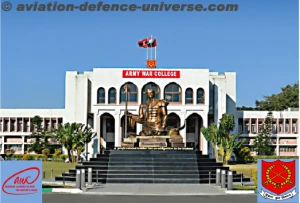 ADU. Will civilian experts or geopolitical voices be part of the dialogue?
ADU. Will civilian experts or geopolitical voices be part of the dialogue?
Maj Gen Ashok Kumar (Retd.). We are not covering geopolitics at all. It’s zero geopolitics. We want to brainstorm those things which are required to be adopted by the defence forces for their improvement and for making the future battle ready. So therefore, you know, since finally that action has to be done by the practitioners and therefore all the speakers are coming from the serving officers and predominantly from the middle to the younger officer lot because they are going to be more inclined to the technology and most of the future wars are going to be fought by them when they come to the respective levels.
ADU. Are all the three services participating in this first edition?
Maj Gen Ashok Kumar (Retd.). Yes, absolutely. In addition Defence Minister is going to be there. CDS is going to be there. All the three service chiefs are planned to be there. But as Army Chief has gone to Algeria, so he is not there in person. But balance two chiefs are going to be there. Anybody and everybody who can contribute towards the decision making and taking forward the issues which are being discussed, will be there.
In the modern battlespace, war is no longer fought in isolated domains. Land, air, sea, cyber, and space operations must converge seamlessly to deliver decisive outcomes. Joint operations ensure that the strengths of each service complement one another—Army’s ground dominance, Navy’s maritime reach, and Air Force’s speed and precision. By pooling intelligence, logistics, and strike capabilities, jointness creates a force multiplier effect that enhances operational efficiency and reduces duplication of effort. In high-tempo conflict environments, the ability to plan, execute, and sustain integrated operations can spell the difference between deterrence and vulnerability. And the interview continues.
ADU. What about veterans and think tanks? Will they participate?
Maj Gen Ashok Kumar (Retd.). Jointness is not only related to the serving people from Army, Navy and Air Force. Think tanks of all three forces are there. Veterans of Army, Navy and Air Force are there. Veterans will not be speaking. Speaking is purely by the serving persons. But the format is that the speech is going to be for a limited period. Thereafter there will be discussion, deliberation and brainstorming. During which time all participants will be there. Then everybody can participate.”
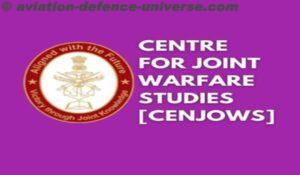 ADU. Have foreign countries been invited?
ADU. Have foreign countries been invited?
Maj Gen Ashok Kumar (Retd.). We have close to 20 defence attaches who are posted in India. And of course online there are a number of people who have been given that option.”
ADU. Since this is happening after Operation Sindoor, are recent lessons also being factored in?
Maj Gen Ashok Kumar (Retd.). When this event was conceived, it was prior to Operation Sindoor and Pahalgam. But as we are going to conduct it post-Op Sindoor , lot of new realities, new lessons have come out and they will be discussed. So we are going to factor those also in the deliberations. On one hand we are going to look at the technologies which are required by our defence forces, how to infuse them and how to train all ranks to develop the requisite skill sets to naturalise with those technologies. So all these things are going to be brainstormed and discussed.
ADU. Are junior ranks also factored into the inputs for such high-level dialogues?
Maj Gen Ashok Kumar (Retd.). I think that responsibility is there with the individual service headquarters. It is not only the officer-centric, in fact, innovation is one area where rank loses its relevance.
Joint operations are equally critical for strategy and long-term preparedness. They foster unity of command and coherence of objectives, ensuring that resources are optimally employed across services. Exercises and war games highlight that interoperability—whether in communication systems, doctrines, or weapon platforms—maximises flexibility in responding to dynamic threats. Jointness also builds resilience against hybrid and multi-domain warfare, where adversaries exploit gaps between services. By encouraging bottom-up suggestions from serving officers, as envisioned in Ran Samvad, India’s armed forces are not only preparing for future wars but also institutionalising a culture where integrated thinking drives doctrine, capability development, and strategic planning.
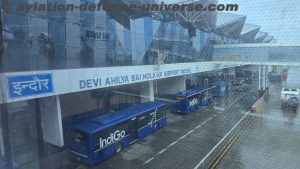 Ran Samvad is more than just another addition to India’s defence calendar—it represents a decisive shift towards practitioner-led, action-oriented dialogue. By placing serving officers at the core, and integrating lessons from recent operations while encouraging technological adaptation, the event promises to generate actionable roadmaps for the future of warfare. With the Army hosting the inaugural edition and the Air Force and Navy set to take the baton in subsequent years, Ran Samvad is poised to grow from a national initiative into a regional and eventually international platform of repute. As Maj Gen Ashok Kumar (Retd.) emphasises, this dialogue will not only enhance jointness within the services but also strengthen India’s interoperability with friendly foreign forces, making it a vital step in preparing for the complexities of tomorrow’s battlespace.
Ran Samvad is more than just another addition to India’s defence calendar—it represents a decisive shift towards practitioner-led, action-oriented dialogue. By placing serving officers at the core, and integrating lessons from recent operations while encouraging technological adaptation, the event promises to generate actionable roadmaps for the future of warfare. With the Army hosting the inaugural edition and the Air Force and Navy set to take the baton in subsequent years, Ran Samvad is poised to grow from a national initiative into a regional and eventually international platform of repute. As Maj Gen Ashok Kumar (Retd.) emphasises, this dialogue will not only enhance jointness within the services but also strengthen India’s interoperability with friendly foreign forces, making it a vital step in preparing for the complexities of tomorrow’s battlespace.








